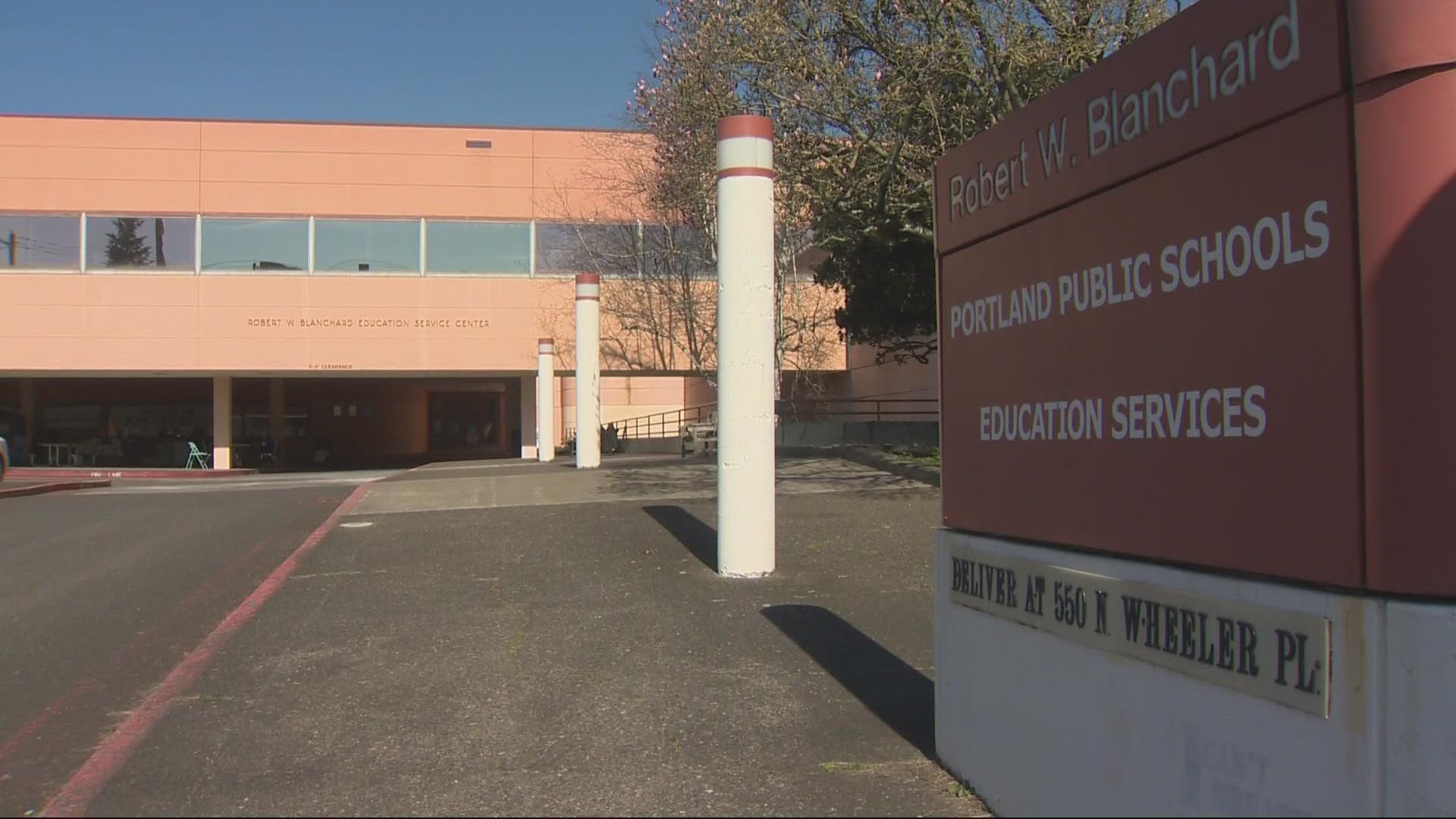PORTLAND, Ore. — After concerns over their children's education during the pandemic, some parents with kids in special education in Portland Public Schools (PPS) are worried next year's proposed budget could mean even less support in the classroom for students with special needs.
Elizabeth Thiel, the president of the Portland Association of Teachers, said information from the district shows 26 fewer licensed special education staff in classrooms next year if the proposed budget is approved.
A PPS spokesperson said student enrollment is projected to go down next year and that also means fewer staff, but said staff and student ratios won’t go down.
Still, the possibility of fewer adults in classrooms has some educators and parents worried.
“These proposed cuts are a bad look for this board and PPS as a whole,” said Angel Courtney, who spoke at a PPS school board meeting last week.
“This affects not only my child but all the future generations of at-risk special needs children."
Courtney said a reduction in staff will be detrimental to children like her 16-year-old son Cael, who struggles with a rare genetic disorder. She said it’s similar to autism.
“It affects his speech, his fine motor control,” Courtney said. “His disorder also comes with an array of behaviors which can be hitting, throwing.”
She said her son’s needs are already not being met, in part because there’s not enough staff. She said her son is prone to overstimulation when there are a lot of people around. When that happens, he can act out, throwing chairs and clearing rooms. Courtney said special education teachers and support staff are doing all they can, but need more resources, not less, to support children who have high needs.
“There's just isn't enough funding as it is,” said Courtney. “The system is already hanging on by a thread. It makes me want to cry,” she said. “It’s not a fun job right now. It’s a hard job and they need support.”
The possibility of a reduction in staff is also weighing on educators, like Mary Darin, who works in special education. Darin is a speech language pathologist for PPS and has worked for the district for nine years. Her colleague, Nathan Earle, also spoke to KGW. He is a licensed clinical social worker who has worked for PPS for five years as a mental health professional.
They, like so many others, say student need is off the charts and right now there’s not enough staffing to meet their students’ needs.
“This year has been incredibly hard. Special educators are leaving the field and yet next year, we're expected to do it all with less,” said Darin.
“Just to hear that we're considering removing supports from a system that is in such great need... really creates a feeling of panic, honestly,” Earle said.
Earle said his elementary school has lost a number of paraeducators, employees who work closely with special education students
“In the school that I work in, we are on paraeducator number seven who is going to be leaving,” said Earle.
He said often parents are also asked to step in to help with the need.
“We had a parent who worked with us this year. She also moved on,” Earle said.
Earle said if positions are cut in special education classrooms, the impact on students will be long-lasting.
“It will set our most vulnerable students up for failure in a time when they most need our support,” he said.
“It honestly scares me for the future of special education because I do see special educators leaving the field. It's an impossible job and it's going to get worse if all these cuts go through and the true needs of students aren't being addressed,” said Darin.
For both Darin and Earle, reducing special education positions feels counterintuitive, especially with so many students experiencing greater need than ever before. They said the need is great across the board — in special education classrooms and general education classrooms — and current staffing levels don’t give educators the ability to address needs in a productive and lasting way.
PPS said each special education student will have the same levels of support and in some cases more.

